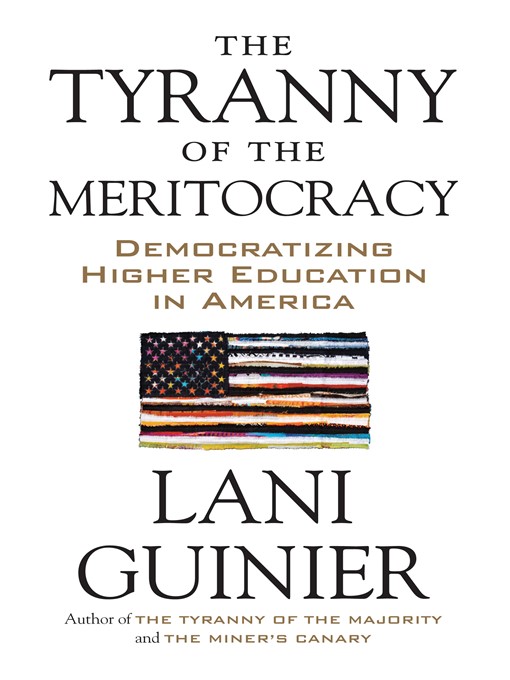
The Tyranny of the Meritocracy
Democratizing Higher Education in America
کتاب های مرتبط
- اطلاعات
- نقد و بررسی
- دیدگاه کاربران
نقد و بررسی

November 1, 2014
From admission standards to teaching philosophy, a renowned academic calls for a paradigm shift in higher education.What her title terms "Meritocracy," Guinier (Lift Every Voice: Turning a Civil Rights Setback Into a New Vision of Social Justice, 1998, etc.)-the first woman of color to receive tenure at Harvard Law School-criticizes as "testocracy." Throughout the book, she demonstrates how high SAT or LSAT scores most often reflect a tyranny of self-perpetuating privilege rather than potential, or even merit, in the broader, more democratic sense of the term. "[O]nce you're past the first year or two of higher education, success isn't about being the best test taker in the room any longer," she argues. "It's about being able to work with other people who have different strengths than you and who are also prepared to back you up when you make a mistake or when you feel vulnerable." Collaboration rather than competition is the key to the transformation, with students encouraged to work in (even take tests in) groups and to concern themselves more with the process of arriving at the correct response than with the correctness of the response itself. She cites professors Eric Mazur (Harvard) and Uri Treisman (Univ. of Texas) as exemplars of this "culture of collaboration." Guinier stresses that such a philosophy is more in keeping with the democratic ideal and that it will nurture potential beyond what a test score measures. She writes that we need "a classroom culture shift," one that encourages "students to value the learning process over the final score." Drawing on academic research and anecdotal evidence, the book makes a strong pedagogical case but is short on specifics as to how we get from here to there.
COPYRIGHT(2014) Kirkus Reviews, ALL RIGHTS RESERVED.

























دیدگاه کاربران